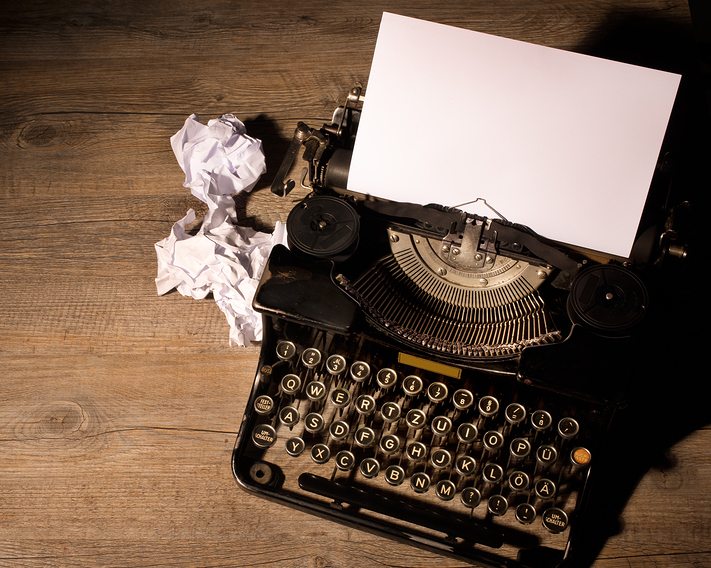Kevin Kruse is professor of history at Princeton University. He is the author of two important works in American religious history: White Flight: Atlanta and the Making of Modern Conservatism (2005) and One Nation Under God: How Corporate America Invented Christian America (2015).
At his Twitter account, @KevinMKruse, Professor Kruse did a series of tweets on writing advice. With his permission, they are reprinted here in a more permanent format.
1. Read as Much as You Can
The best way to improve your own writing is to read as much as you can from other authors. Not just the great books, either. You can pick up good habits in reaction to bad writing, too.
And don’t just read narrowly in your own sub field, or even in your own discipline. Historians should read novelists, not just for prose but for plotting and pacing.
Maybe this section works as a mystery, with slow build up and then a reveal? Maybe that chapter needs the tension of an upstairs-downstairs plot? Does this political tale need the grandeur of a heroic battle, or the intimacy of a flawed character study?
2. Write as Many Ways as You Can
This advice will come too late for more advanced scholars, but if you’re in college and just starting out—try your hand at as many different kinds of writing as possible.
When I was in college, in addition to my classwork, I wrote for the campus newspaper and took a lot of creative-writing poetry courses. Now, I was a horrible poet. But I learned a whole lot about word choice, structure, meter, rhyme, and rhythm along the way.
3. Complex Thoughts Need Clear Language
I’ve written this a thousand times on undergrad papers, but it’s a lesson that could be learned by some grad students and senior scholars too. You’re trying to persuade readers with your argument, not impress them with your thesaurus.
Avoid jargon whenever possible. There are certain terms that are vital to a field, but if they’re not readily understood by non-specialists, neither will your argument. Break it down for them.
There’s a reason newspaper editors often tell op-ed writers to imagine they’re writing for an audience of “intelligent non-specialists.”
I wrote every line of my dissertation with two people in mind—my dissertation director and my mom, a high-school graduate. I knew that if I could craft a history that met his high standards but was accessible and understandable to my mom, then I’d have done it right.
4. Word Choice Matters, But Sentences Do Too
Too often, academics hear their writing as they imagined they wrote it, and not thinking about how it sounds to someone approaching them fresh. This is why I always tell students to read their work aloud.
Sentence structure matters here. I often read work that’s a mass of uniform sentences styles and length, but writers have to remember they’re not just providing the lyrics of a song, but the music that will accompany it.
There’s a popular quote by Gary Provost that gets this point across well:
This sentence has five words. Here are five more words. Five-word sentences are fine. But several together become monotonous. Listen to what is happening. The writing is getting boring. The sound of it drones. It’s like a stuck record. The ear demands some variety. Now listen. I vary the sentence length, and I create music. Music. The writing sings. It has a pleasant rhythm, a lilt, a harmony. I use short sentences. And I use sentences of medium length. And sometimes, when I am certain the reader is rested, I will engage him with a sentence of considerable length, a sentence that burns with energy and builds with all the impetus of a crescendo, the roll of the drums, the crash of the cymbals—sounds that say listen to this, it is important.
5. Pace Yourself
It’s easy to get overwhelmed by the larger process of writing an article, a dissertation or a book, so think about the big picture first and then focus in on one sentence, then one paragraph, then one section. One at a time.
Some grad students follow the model of my brilliant colleague Tony Grafton by setting a minimum word limit to hit each day, but I learned a long time ago that I’m no Tony Grafton. (You may be, though. Have at it!)
But yes, write something each day. Some days it flows effortlessly, and I can crank out five to ten solid pages. Some days I struggle over a single sentence, but if I finally get it right, that’s enough. Some days I realize I just have to walk away.
But the writing is only the beginning. That “write drunk, edit sober” line attributed to Hemingway might be apocryphal, but it has the stress in the right place. Editing and rewriting are the key to the whole thing.
And this can be, and should be, a collaborative process. Whether it’s presenting in formal workshops or sharing drafts with a friend, get some fresh eyes on your writing whenever you can.
And, this should go without saying, but you should be circulating your worst material, the stuff you need the most help on. You’re not trying to show off, you’re asking for help. We all need it.
